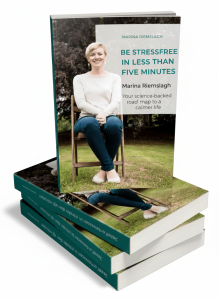For many people, it feels self-care as something natural, but for trauma survivors, it can be a real challenge. Your body and mind react differently after traumatic experiences, so activities that relax others can actually cause stress. This is because of the way trauma affects your nervous system and changes your relationship with yourself. Fortunately, there are ways to break through these barriers and gradually build a self-care routine that does work for you.
The neurological impact of trauma on self-care
Trauma literally changes how your brain works. You nervous system remains in a state of heightened alertness, as if danger is still present. This means that your autonomic nervous system, which normally provides rest and recovery, becomes disturbed.
The familiar fight-flight-freeze response remains active even in situations that are actually safe. When you try to relax in a hot bath or during meditation, your body may interpret this as danger. Your heart rate goes up, your muscles tighten, and instead of resting, you actually feel more stress.
This explains why self-care is so difficult for trauma survivors. Your body has learned to be constantly on guard. Resting moments don't feel safe because your survival mechanism tells you to stay alert. It's not that you don't want to relax, but your nervous system is working against you.
Why guilt sabotages self-care after trauma
Many trauma survivors struggle with intense guilt around self-care. These feelings often arise from the way trauma affects your self-image. You may have learned that your needs don't matter, or that taking care of yourself is selfish.
After trauma, you often develop a survival mode where you eliminate yourself. You focus on others, on problem solving, on everything but your own well-being. When you then try to make time for self-care, it feels wrong. Your inner voice tells you that there are more important things, that others need you more.
These feelings of guilt are not rational, but they feel very real. They arise from a protective mechanism that was once helpful but is now getting in the way of your recovery. Breaking this pattern requires patience and self-compassion. You must learn that taking care of yourself is not selfish, but necessary for your recovery.
Hypervigilance as a blockade to relaxation
Hypervigilance is a state of constant vigilance that many trauma survivors experience. You are constantly scanning your surroundings for possible threats, listening for every sound, watching for every change. This takes an enormous amount of energy and makes true relaxation almost impossible.
When you try to meditate, read, or just sit still, your mind keeps actively searching for danger. You cannot surrender to the moment because a part of you is always on guard. This explains why traditional relaxation techniques often don't work for trauma survivors.
The exhaustion caused by chronic alertness is enormous. You are constantly "on," leading to physical and mental fatigue. Paradoxically, this fatigue makes it even harder to relax because your nervous system becomes even more sensitive to stimuli. For people who struggle with this constant tension, a de-stressing workshop help teach safe relaxation techniques.
| Normal relaxation | Relaxation in hypervigilance |
|---|---|
| Natural transition to rest | Increased tension at silence |
| Reduced heart rate | Increased alertness |
| Relaxed muscles | Tense, ready for action |
| Quiet thoughts | Scanning for danger |
Recognizing physical signs after trauma experience
Trauma disrupts your connection to your body in a fundamental way. Many survivors experience some form of dissociation, disconnecting yourself from bodily sensations, so to speak. This was a survival mechanism during the trauma, but it now interferes with your recovery.
When you don't feel what your body is telling you, self-care becomes guesswork. You don't notice that you are hungry, tired, or feel pain. Your body does send signals, but you have learned to ignore them or you simply don't feel them anymore.
This bodily alienation makes it difficult to know what you need. How can you take care of yourself if you don't know what your body is asking for? Regaining this connection is a gradual process that takes time and patience.
Some trauma survivors experience just the opposite: they feel everything too intensely. Every sensation becomes overwhelming, which also makes self-care difficult. Whether you feel too little or too much, both extremes make it difficult to properly assess your physical needs.
Small steps to sustainable self-care
Building self-care routines after trauma requires a different approach than the usual advice. You need micro habits that take into account your trauma sensitivity. Start small, very small.
Start with activities that take no more than two minutes. Consciously drink a glass of water, take three deep breaths, or wash your hands with attention. These small moments help your nervous system get used to the idea of self-care without overwhelming it.
Trauma-informed self-care takes into account your triggers and limits. It's not about perfect routines, but small moments of self-compassion. Some days it works, some days it doesn't, and that's okay. The process is more important than the result.
Build out gradually when something feels right. Don't add something new every week, but let habits really settle in first. Your nervous system needs time to learn that self-care is safe. Respect this pace and don't force anything.
- Start with micro-moments of 1-2 minutes
- Choose activities that feel safe
- Accept that not every day is the same
- Build out only when something feels natural
- Be patient with your nervous system
Self-care after trauma is not a luxury, but an important part of your recovery process. It requires a different approach than traditional methods, but it is certainly possible. By understanding your nervous system and taking small, safe steps, you can gradually build a self-care routine that really works for you. Discover your core and learn how to care for yourself in a trauma-informed way, taking into account your unique needs and pace.
